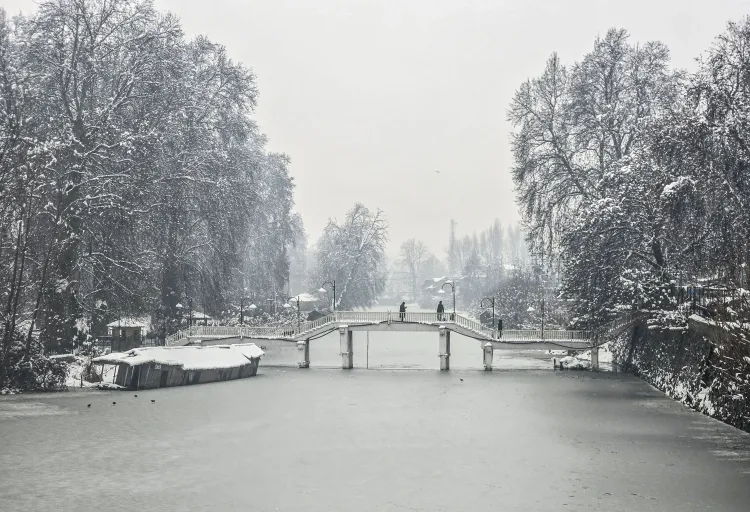Kashmir Set to Experience Increased Snow and Rain in the First Week of the New Year

Srinagar, Dec 29 (NationPress) Intense snowfall and rain have significantly impacted life across Kashmir as the Meteorological (MeT) department has forecasted cold, dry weather in the next 72 hours for J&K.
Mukhtar Ahmad, the Director of the local MeT department, informed IANS, "Two Western disturbances (WDs) are anticipated to influence the weather system on January 1st and January 3rd. The first WD is expected to be weak, while the second WD is predicted to be of moderate strength, leading to snow in the Valley and mixed rain/snow in the Jammu division."
The term WD refers to an extratropical storm originating in the Mediterranean Sea, which brings snow and rain to regions in India, Pakistan, and Nepal.
The success of the Rabi crop largely hinges on the activity of these WDs, as adequate snow and rainfall can indicate a plentiful harvest.
Minimum temperatures in Srinagar have significantly improved following recent snowfall.
Srinagar recorded a minimum of -0.2°C, Gulmarg at -8.5°C, and Pahalgam at -8°C on Sunday.
Jammu city saw a low of 6.1°C, Katra at 5°C, Batote at -2°C, Banihal at 0.8°C, and Bhaderwah at -5°C during the night.
Roads and highways have remained extremely slippery due to layers of frozen snow left behind after clearing operations on Saturday.
A blanket of frozen snow on all roads and highways hindered traffic movement on Sunday morning as residents opted to stay indoors for safety.
A common issue during winter in the Valley is fractured limbs resulting from slippery pedestrian areas, leading to an increased patient load at hospitals, especially the only specialized bone and joint hospital located in the Barzalla area of Srinagar.
Doctors in the cardiology department of Srinagar Medical College have issued warnings to the public, advising them about the risks of heart attacks and heart failures due to exposure to cold conditions.
Individuals in high-risk age groups have been specifically advised not to expose themselves to extreme cold, as this, combined with chest infections, has been linked to increased mortality from heart failure during winter months.
This might relate to what the renowned playwright William Shakespeare alluded to when he spoke of those who survive the 'Ides of March'. Following March, the weather improves in England, and older individuals who endure the harshness of winter are said to have overcome the challenges posed by the winter season, termed the 'ides of March'.









